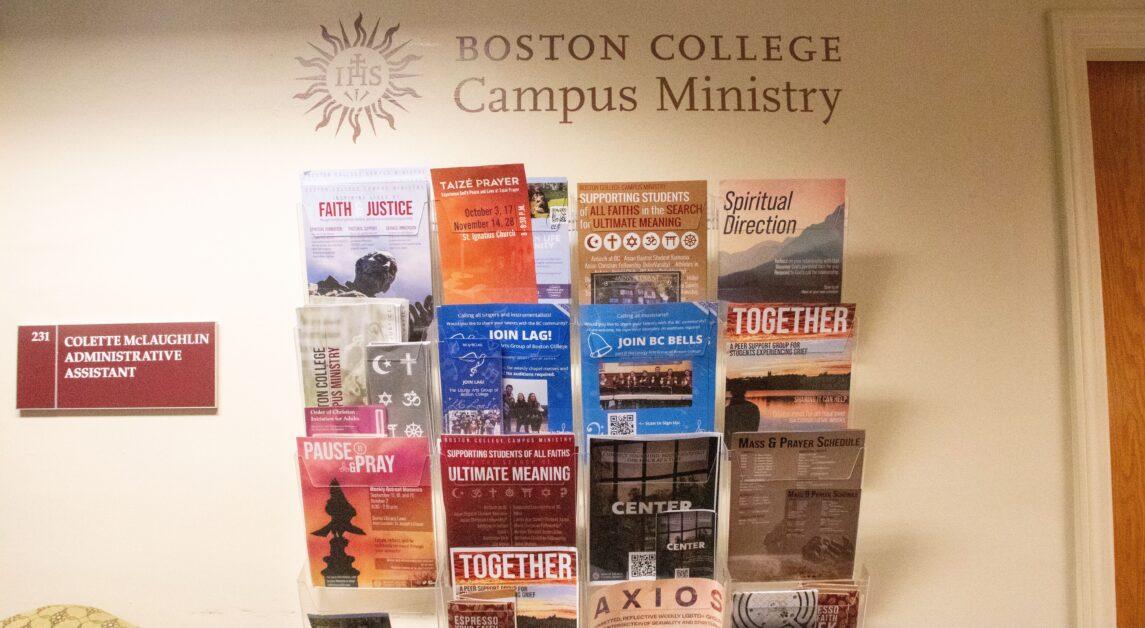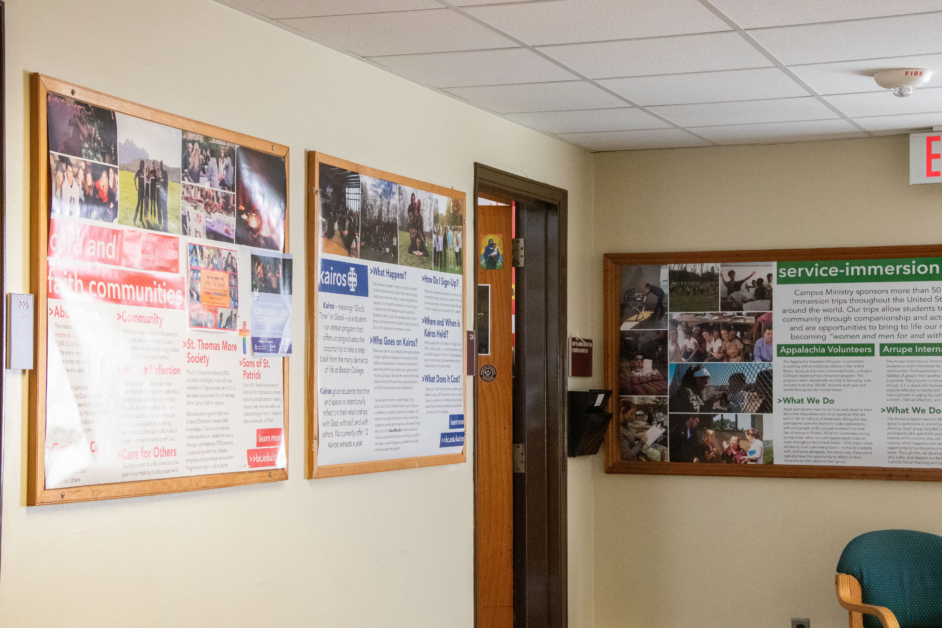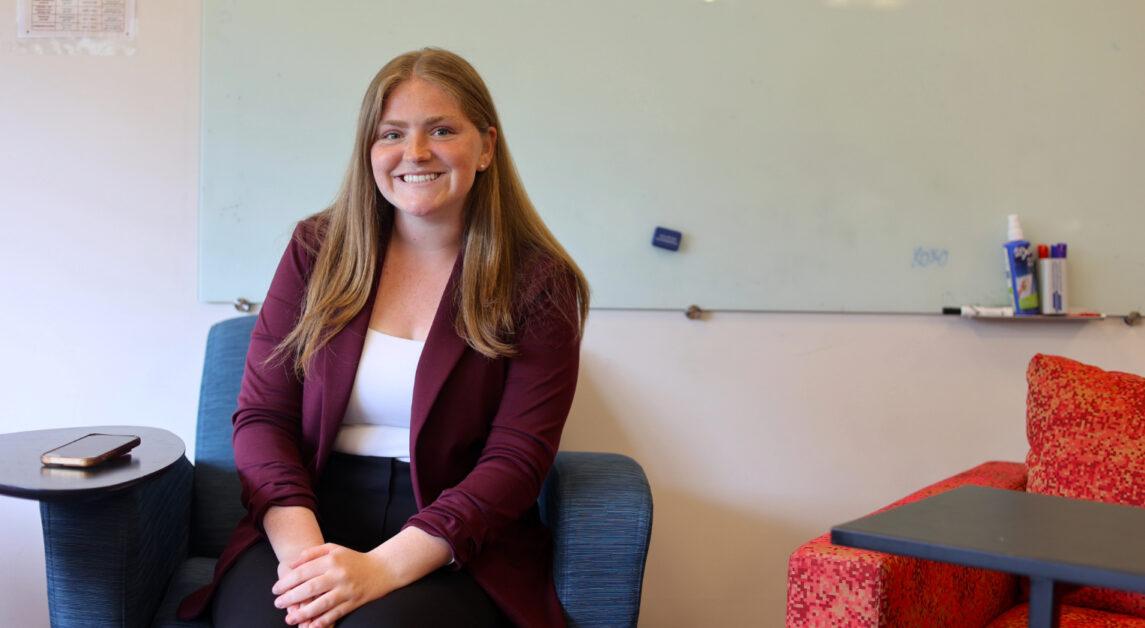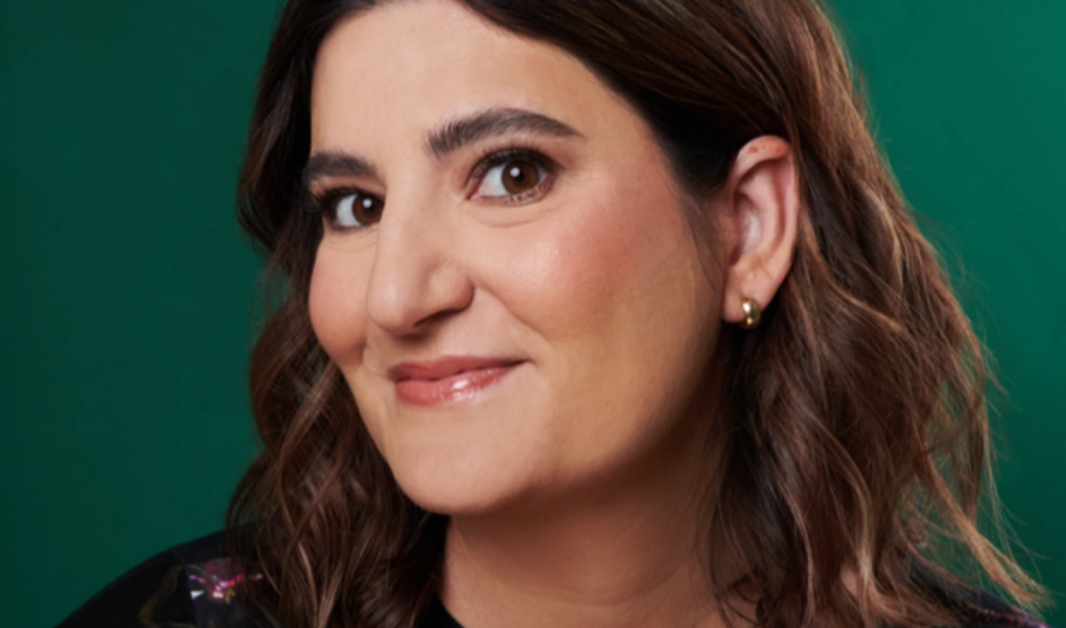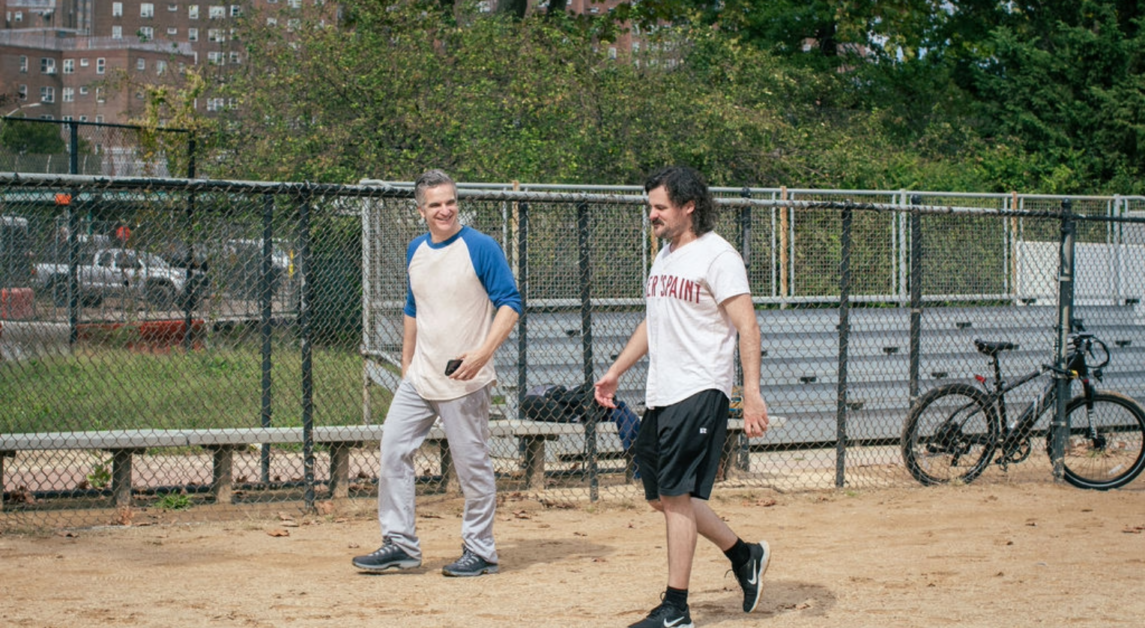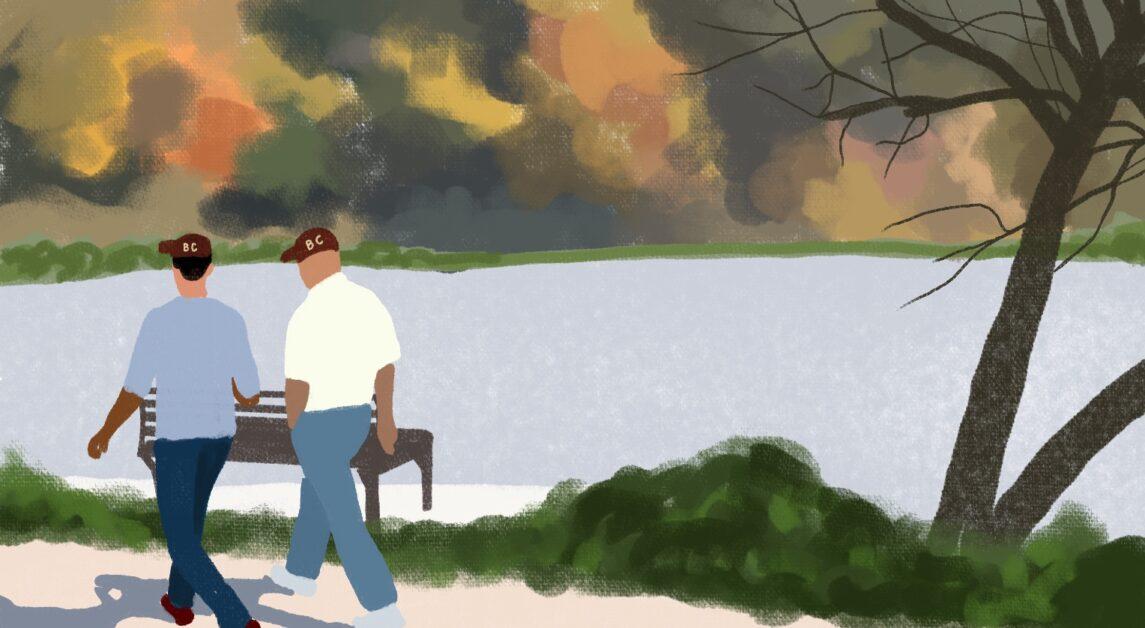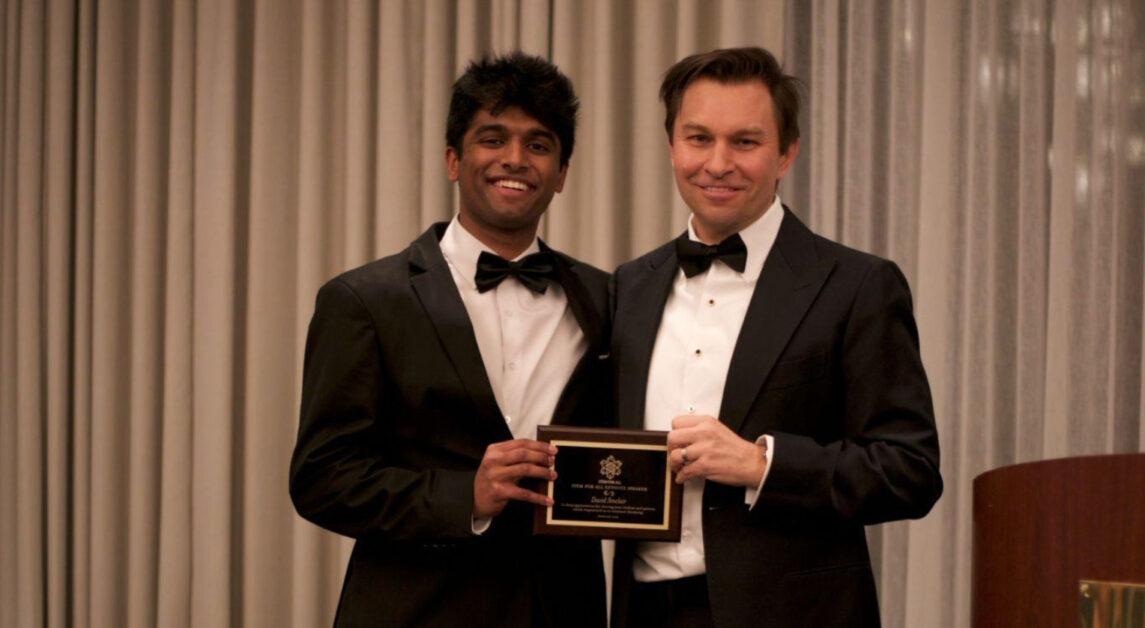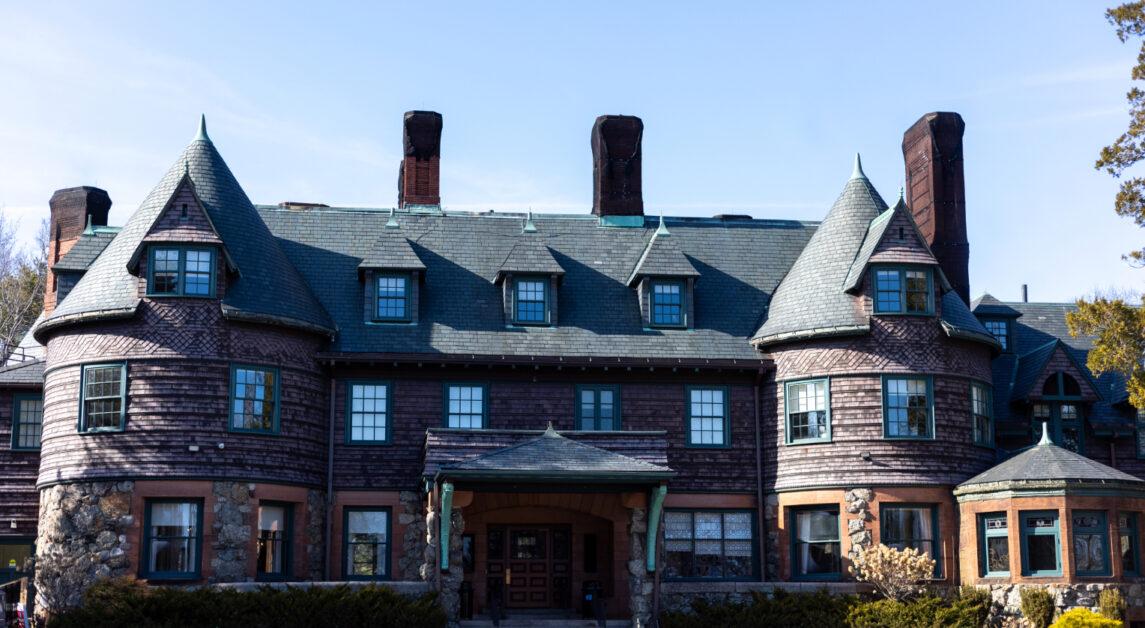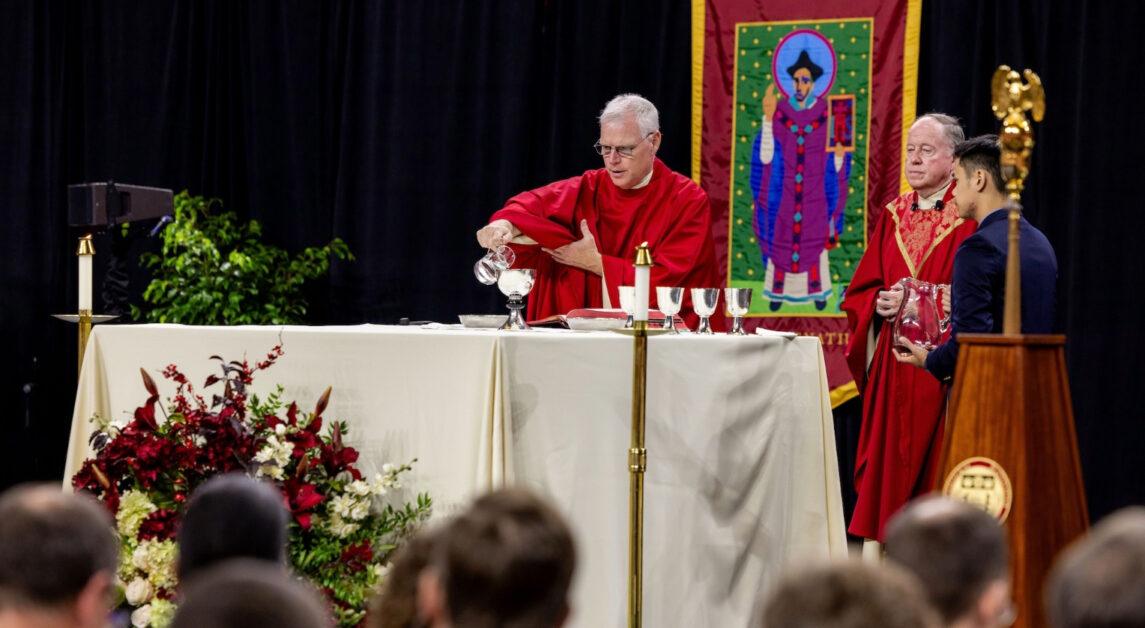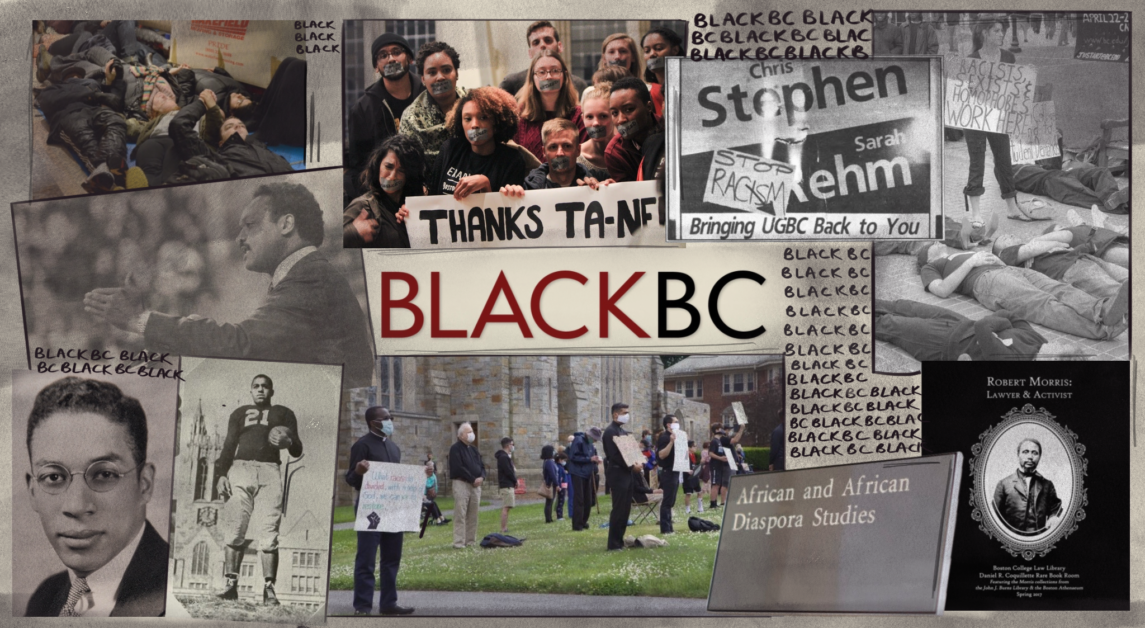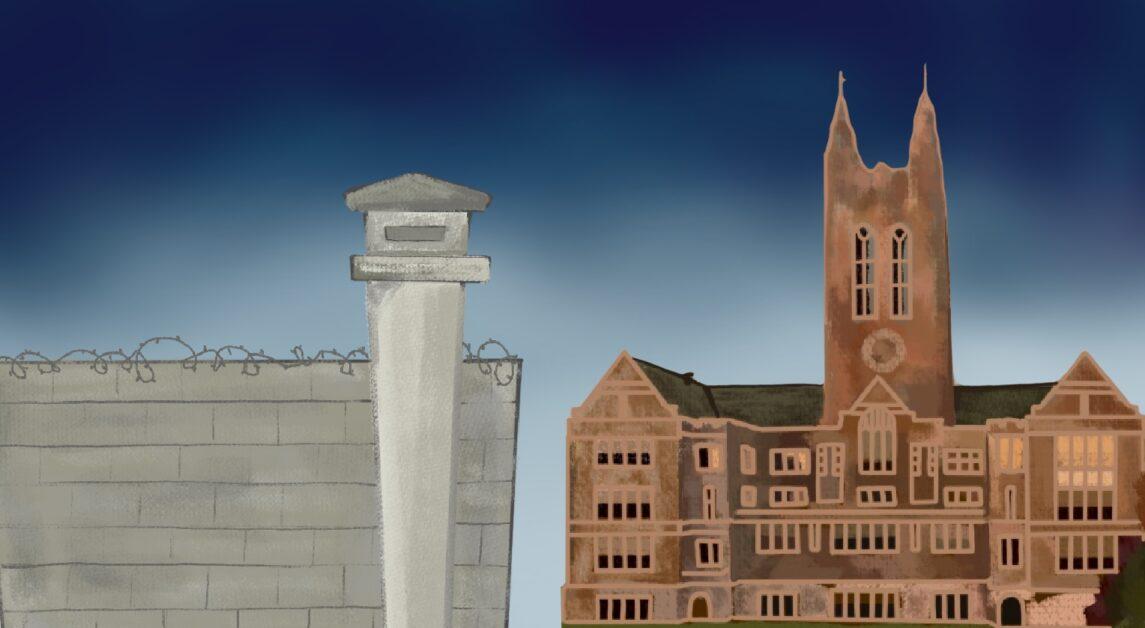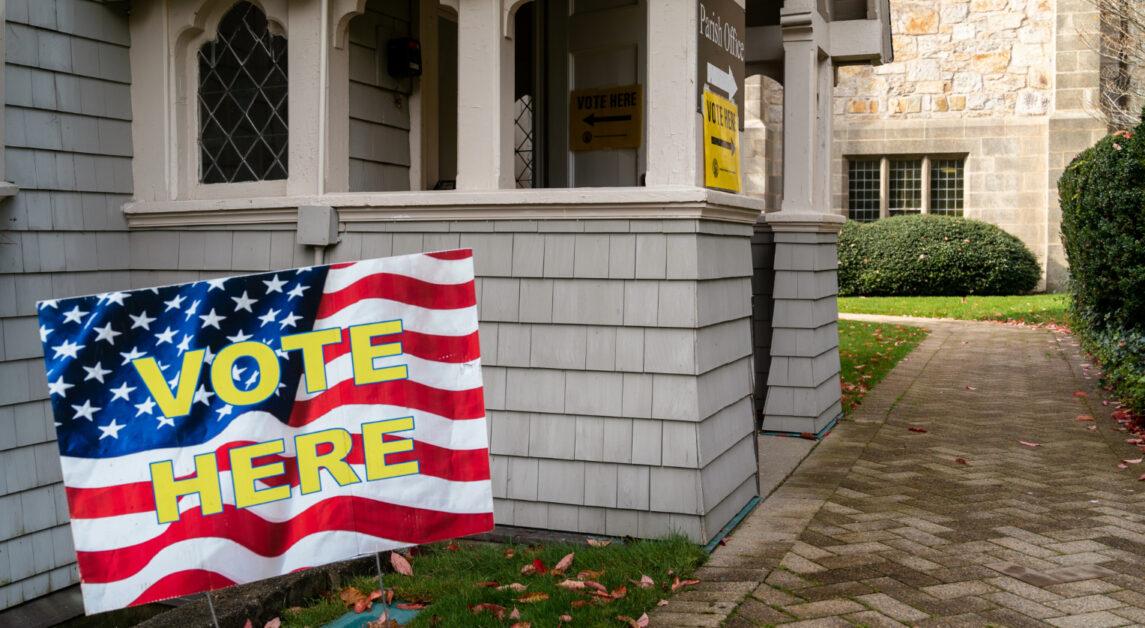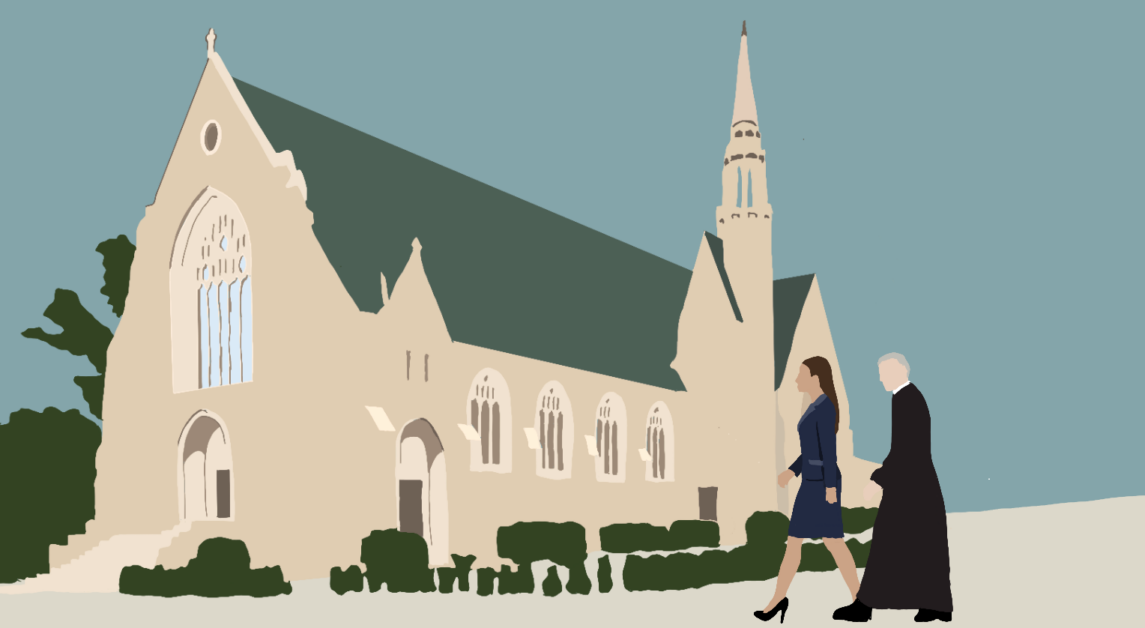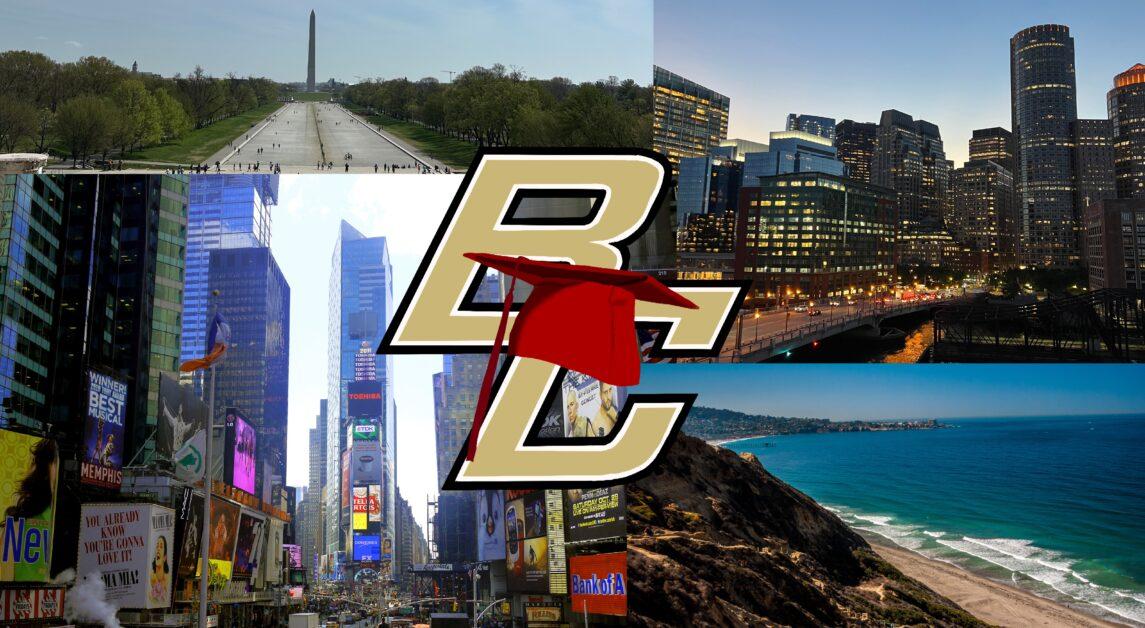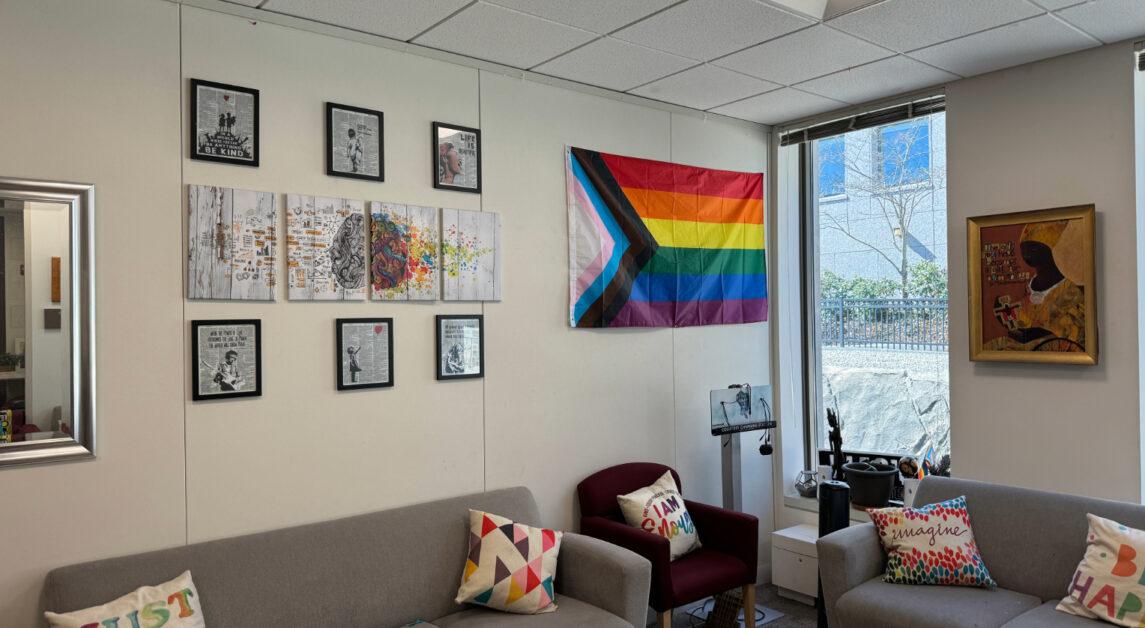The first statistic in the fact and figures tab on Boston College School of Theology and Ministry’s (STM) website states that the school places 10th overall in a worldwide ranking of theology, divinity, and religious studies.
With a swift scroll down the page, anyone interested would find that 85 percent of the 371-person STM student body is Catholic, with 16 percent belonging to the Jesuit order.
Scroll farther, and there are no statistics about any other religious identities in STM.
BC as a whole—founded in 1863 by the Society of Jesus to educate Irish-Catholic immigrants—continues to promote a Jesuit, Catholic intellectual tradition.
But with 15,075 undergraduate and graduate students across nine schools and colleges, BC’s religious teachings are not single-dimensional, but they rather contain a vast range of theological thought, according to the University’s website.
“The Catholic intellectual tradition is not static traditionalism, but is constantly revolving, drawing from the riches of the past to give life to the future and, in its search for truth, engaged with every discipline and with all forms of belief and nonbelief,” the website reads.
While many BC students are Catholic, and the University is situated in Chestnut Hill—a town where residents’ primary religious affiliation is Catholic—non-Catholic students engage in spiritual dialogue and maintain a prominent presence within the University.
Rev. James Hairston, the campus minister of multi-faith programs at BC Campus Ministry, said there are 21 religious student groups on campus, including many that are non-Catholic.
From Judaism, Islam, and Buddhism to non-denominational Christianity, Protestantism, Orthodoxy, and more, Hairston said the myriad of religions represented through student-led groups demonstrates students’ individual ownership over how they approach their faith.
“They’re coming to their Catholicism at their own pace,” Hairston said. “They come into their Jewishness at their own pace and come into their Islamic identity at their own pace that is dictated by them, and they own it.”
As religious minorities on campus, non-Catholic students especially exemplify virtue and leadership by seeking to build their own religious communities, Hairston said.
“The groups that we do have here in terms of non-Catholic or religious groups are here by virtue of the students,” Hairston said. “So none of these groups could be here if it wasn’t for the students who desire to have them here.”
Hairston said he works with student faith groups when they need resources from the University. He manages finances for BC Hillel and the Muslim Student Association (MSA), for example.
“We’ve done bat mitzvahs on campus,” Hairston said. “And I think there’s a reason why our Jewish students decide to come to a place like BC where they can approach their Jewish identity at their own pace and in a position which is comfortable to them.”
Avery Miller, MCAS ’24, is president of BC Hillel, a prominent club for Jewish students on campus. He said Hillel has consistently had a positive experience working with Campus Ministry to plan for events and holidays.
“I can’t speak for other clubs, but I can speak for Hillel and we definitely do feel supported,” Miller said. “And I’ve been in touch with Campus Ministry, and they’re all great.”
Hillel hosts Shabbats every week in the Gabelli lounge, Miller said, and it rents out the Thomas More Apartments and various chapels on campus through the University.
Campus Ministry also supports Hillel with funding for larger events and multi-faith celebrations, Miller said. During Miller’s involvement with Hillel, the group hosted a dinner with MSA. Miller said that he also hopes to partner with a Christian student association.
“We want to make a solid multi-faith event, you know, we want to share our traditions with the rest of the people at Boston College rather than keeping it to ourselves,” Miller said.
Abdullah Sayed, MCAS ’24, said MSA focuses on representing Muslim students but shares Hillel’s enthusiasm for including students of all backgrounds. As president, Sayed has noticed that some of MSA’s most regular attendees at events are non-Muslim students.
“It provides religious services to Muslims, but it’s also a place for people of all backgrounds to have a discussion and conversation about things that are meaningful to them and for them to meet people who are like-minded,” Sayed said.
Sayed said that MSA hosts four to five weekly events. Some events are strictly religiously oriented, like the Friday prayers and halaqa, while others consist of open dialogue, games, and refreshments.
“For me, and I think for a lot of people in MSA, it’s a community that although it’s based on Islamic values and virtues, it more broadly offers a place for people to engage in a welcoming alternative to BC norms,” Sayed said.
Beyond renting rooms from the University for weekly prayers and dinners, Sayed said that coordination for larger celebrations rely on more complex accommodations from BC, especially from BC Dining.
For example, Sayed said that eating schedules for celebrations like Ramadan require meals during times outside of BC Dining’s typical hours. Although Sayed said that getting proper accommodations has been difficult at times due to scheduling conflicts, he said MSA has continuous conversations with the University and BC Dining.
“The University is making an effort and there’s been a dialogue with BC dining, for example, for the last few years,” Sayed said. “They’ve been trying to improve their accommodations, and they’ve been listening to constructive feedback that we provided.”
Sayed also said the Women’s Center invited MSA to an event about women’s rights protests in Iran, but on the day the event was supposed to take place, an employee of the Women’s Center informed MSA that it had been canceled without any communication prior to that interaction. This moment, Sayed said, exemplified how BC can increase its attention to interfaith events.
“What I would like to see is the BC administration putting in more effort to kind of endorse interfaith events that Campus Ministry hosts and that sort of thing,” Sayed said.
Vikram Bail, president of the South Asian Student Association (SASA) and CSOM ’24, said that SASA hosts many events with MSA, as many of SASA’s members are involved in both SASA and MSA.
Bail said that while SASA is not specifically focused on religion, it also hosts some Hindu events, including Diwali—one of SASA’s largest events of the semester.
“It’s nice to have groups on campus like the South Asian Students Association where it’s like the focus isn’t religion, but there are a lot of people in the club that are Hindu that I can kind of talk with and bond with since we have that similar background,” Bail said.
Bail said that growing up, he had a relationship with Hinduism and occasionally went to temple with his family. Coming to BC as a freshman, Bail said that he felt unsure about how intensely Catholic teachings would be weaved into his social and educational experiences through BC’s religious values.
“I came in with the expectation that most events and stuff on campus that they’re going to be promoting is Catholic, and I think that’s fair,” Bail said. “I applied to the school knowing that was the intention of the school, but I have had the opportunity to kind of explore my own religion through SASA and just by connecting with the other people in the club.”
In addition to the dialogue about faith cultivated by SASA, Bail said he appreciates how BC’s theology classes are not strictly Catholic-focused. He said he took Hinduism and Christianity in Dialogue, one of BC’s eight sacred texts and traditions courses that bring a comparative approach to two spiritual traditions.
“If they just had you take Catholic courses, I would have been like ‘Alright, what is this? It’s just like one religion,’” Bail said. “But the fact that they engage in a dialogue between both religions, I think, is something that’s pretty cool.”
BC has given Bail the opportunity to explore his own religion while also learning about the Jesuit, Catholic tradition, he said.
“I never felt like the stigma of ‘Oh, they’re going to try to make me Catholic,’ which I think is good,” Bail said. “I’m still Hindu and confident in my own beliefs, but I’ve also been able to engage in Christianity while sharing that Hindu part of myself as well with others.”
Ashlee Hatch, STM ’24, is president of the BC Latter-Day Saints Students Association (LDSSA). She said that she feels supported by other students when it comes to her faith but has struggled to create connections with faculty and staff.
“I mean, I’ve had some pretty not so great things said to me, even people suggesting that I shouldn’t attend this University,” Hatch said.
Looking at her experience building a community through LDSSA, though, Hatch said she thinks that Campus Ministry effectively represents each religious community at BC.
“I would say, like Reverend James runs the interface group—he and Kelly Hughes—and they’ve been fantastic as far as welcoming people of different faiths in providing space for them,” Hatch said.
Hairston said that spiritual exploration—Catholic and not—is embedded within the undergraduate student life at BC. Retreats like 48Hours and Halftime not only encourage dialogue from non-Catholic students, but they contribute to BC’s mission of cura personalis, he said.
“It’s across the board, everything from when you first come in and they pitch you 48Hours as your first retreat, or the sophomore year Halftime retreat,” Hairston said. “These retreats aren’t exclusively Catholic or even religious for that matter, but they do cause you to think about something bigger than yourself.”
Beyond supporting the 21 faith-based student organizations, Hairston said that Campus Ministry opens its doors to non-religious students as well.
Typically, Hairston explained, Campus Ministry’s services focus on growing a student’s relationship with a “higher power”—whatever that means for the individual.
“If there was a student who wants to go deeper into Humanism, I’d be surprised that we would say no because of the fact that we ultimately want to help students get closer to God—however they define God, or however they define the higher power, if you will,” Hairston said.
Ernest Romero contributed to reporting.
Correction (9/28/23; 3:03 pm): The title of SASA has been corrected to the South Asian Student Association.

